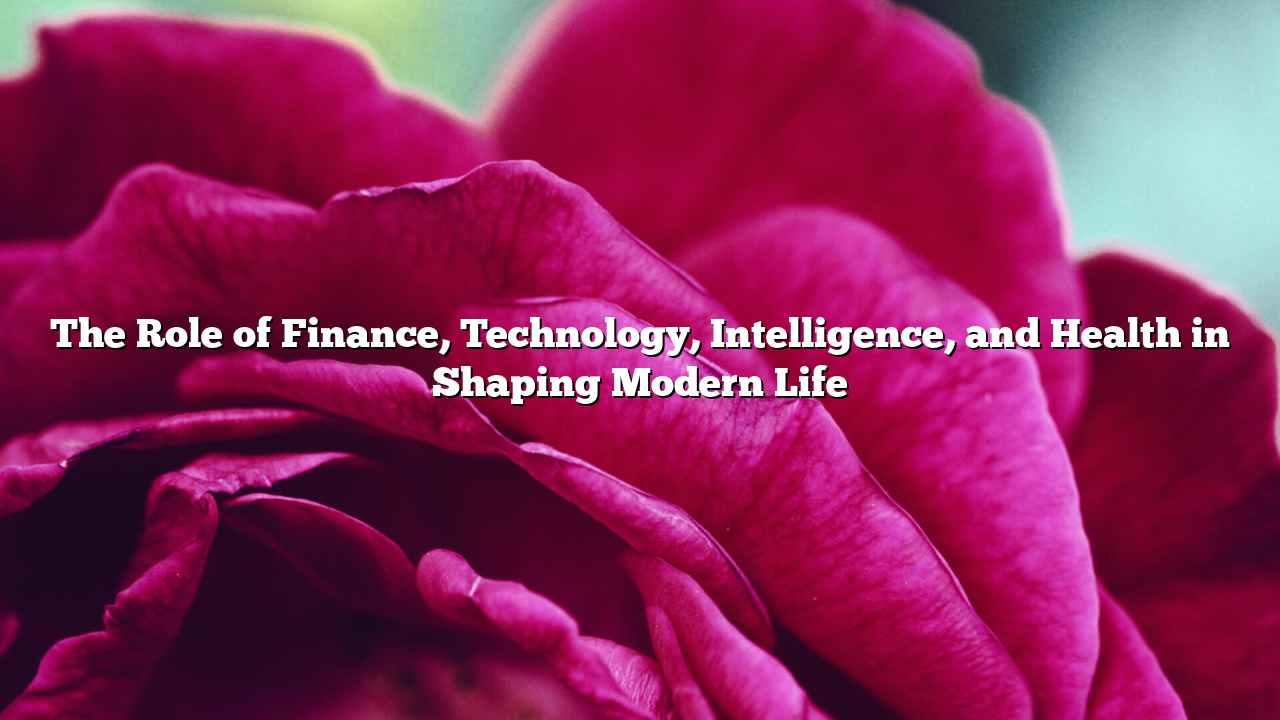In today’s fast-paced world, four pivotal elements influence how we live, work, and interact: finance, technology, intelligence, and health. jejuslot are interconnected and have a profound impact on every aspect of our daily lives. Understanding how they interact is essential for navigating this complex landscape.
The Financial Landscape: Transformations in Modern Economies
The financial sector has undergone dramatic changes over the past few decades. From traditional banking systems to the rise of cryptocurrencies and fintech startups, financial innovations are reshaping the way we manage money. One key development has been the shift towards digital finance, which has provided greater access to financial services for people across the globe. With the rise of mobile banking apps, managing money has become faster, easier, and more accessible for people everywhere.
Additionally, financial intelligence has become crucial for individuals and businesses alike. With the increasing availability of data, leveraging technology to analyze and interpret financial information has become more important. Financial intelligence involves the use of algorithms, machine learning, and artificial intelligence (AI) to predict market trends, evaluate investment opportunities, and optimize financial strategies. These technological tools help individuals and organizations make informed decisions about investments, savings, and budgeting.
Technology: The Catalyst of Change
There’s no doubt that technology has profoundly impacted nearly every aspect of modern life. From artificial intelligence and automation to blockchain and the Internet of Things (IoT), technology continues to reshape industries and redefine what is possible. For instance, AI is being used in everything from customer service to healthcare, while blockchain is providing secure and transparent ways to manage transactions. Automation has streamlined various processes in manufacturing, logistics, and even service industries.
Furthermore, the rise of the Internet of Things (IoT) has led to an increasingly connected world. Devices like smart homes, wearables, and connected health-monitoring systems are making it easier for people to access real-time data that enhances their daily experiences. This network of interconnected devices has allowed for smarter decision-making, enhanced productivity, and a more personalized approach to everything from healthcare to entertainment.
As technology advances, it also raises new questions about privacy, security, and ethics. The vast amounts of personal data being collected require strict regulations and safeguards to protect privacy and ensure ethical practices.
The Role of Intelligence in the Modern World
Intelligence, in its various forms, plays a pivotal role in shaping how we interact with the world around us. Human intelligence allows us to think critically, solve problems, and innovate in ways that have led to some of the most groundbreaking advancements in science, technology, and society. However, the rise of artificial intelligence is changing the landscape of what intelligence can do. AI systems are designed to mimic human cognition, learning from vast datasets and making decisions based on patterns that would be impossible for humans to discern. These advancements in AI have brought about incredible innovations, from self-driving cars to predictive healthcare.
While AI holds great promise, it also brings challenges, such as its impact on employment, ethics, and the nature of human identity. There are concerns about AI potentially displacing jobs and making biased or unethical decisions. Therefore, balancing the potential benefits of AI with the ethical considerations of its implementation is crucial.
The quest for artificial general intelligence (AGI) introduces fundamental questions about the future of interactions between humans and machines. How can we ensure that AI aligns with human values and supports the collective well-being?
Health: The Foundation of a Thriving Society
Health is undeniably one of the most important aspects of human life. In recent years, there has been a growing emphasis on mental and physical well-being, recognizing that a healthy body and mind are essential for a fulfilling life. Advances in medical technology, such as telemedicine, wearable health devices, and gene editing, are revolutionizing the way we approach healthcare. Telemedicine has made healthcare more accessible, and wearable devices track vital health metrics, providing individuals with valuable insights.
AI’s role in healthcare is also growing, as it helps improve diagnostics and treatment plans. By analyzing vast amounts of medical data, AI can deliver faster diagnoses and tailor treatments to individual patients. This technological leap not only enhances the efficiency of healthcare systems but also improves outcomes for patients. As a result, healthcare is becoming more proactive, personalized, and accessible.
However, health is not solely about technology. True well-being requires a holistic approach, addressing mental health, lifestyle habits, and ensuring access to quality healthcare services.
Conclusion: The Power of Integration in Modern Life
Looking ahead, it is clear that these four sectors—finance, technology, intelligence, and health—will continue to shape our future. The interconnected nature of these fields creates both challenges and opportunities, urging us to carefully navigate the changes ahead. By embracing the power of these sectors, we can create a more sustainable, fair, and prosperous world for everyone.
